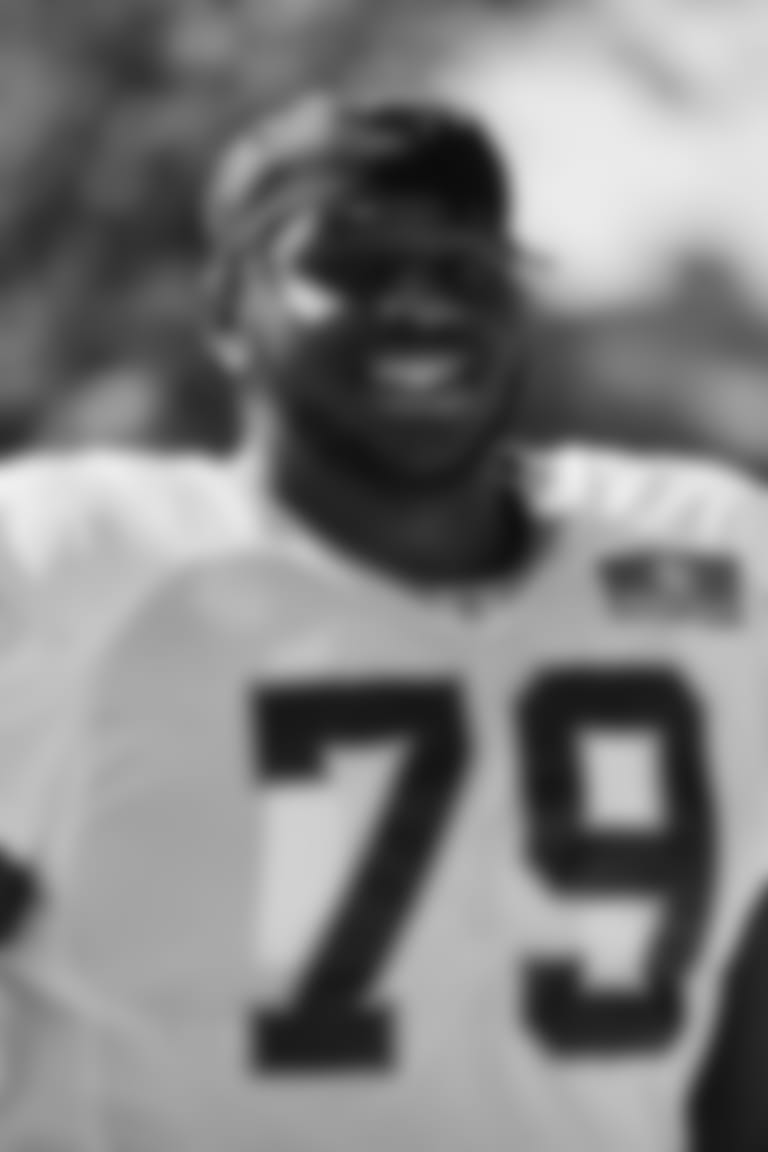"He's very smart, very book-smart. Now it's the application of taking it from paper to being consistent," Campen said of Ekwonu. "In a game, he'll have four similar blocks; each one got better and better. So let's see if we can, instead of starting at one, start at two or three. So we can always be consistent. Let's get Bs from the start instead of starting at C-minuses.
"He's very good. He's young. I know he'd tell you this, too; it's the detail of being consistent with the details. It's something he continues to have to work on and understand. Really for any position but offensive line, that's got to be your major. To always have that at the forefront of your mind, the why, how, and when to utilize things. And that's very, very important to him."
Campen knows because he spent eight years in the league as a player and has coached linemen in the NFL since 2004. Erving knows because he learned the hard way as a rookie and wants to share those lessons.
And while having a coach speak sharply at you is how many NFL players have to learn learn, having that softer voice in a rookie's ear can make a difference in picking up the nuances that help make the talent matter more. Corbett calls it "the difference in Football 101 and Football 501," and Erving is the kind of professor who can teach precocious freshmen at a graduate level.
"With Cam, he can help bridge that gap at times," Campen said.
You see it on the sidelines during games, when Ekwonu comes over, and Erving is next to him. You see it on the practice field between reps. But mostly, it's work done in the times you don't see that makes the most difference.
"I'm feeling a lot more comfortable," Ekwonu said, just over a third of the way through his rookie season, days short of his 22nd birthday. "I feel like I'm making strides with the help of guys like Cam and some of the other veterans. I definitely appreciate them, and I'm proud of the progress I've made so far.
"Every rep you have, you want it to be as close to perfect as it can be. So anytime I do something on the field or put something on film, I never want it to be like a C or a C-plus. Especially not effort. So every time I get on the field, I want to make sure I execute to my highest ability. That's a good point, starting at a B or a B plus. Then you can just narrow up the little things and get to an A.
"Having a guy like Cam who can share his perspective is great, and being able to do that on the field just doubles down on those lessons. They go hand in hand, on the field and the meeting room."
And while the world of football is loud, and the lessons on the field are often delivered at a yell, it's the quiet voice that firms up those lessons.
Sometimes, it's the whisper that speaks the loudest.




















